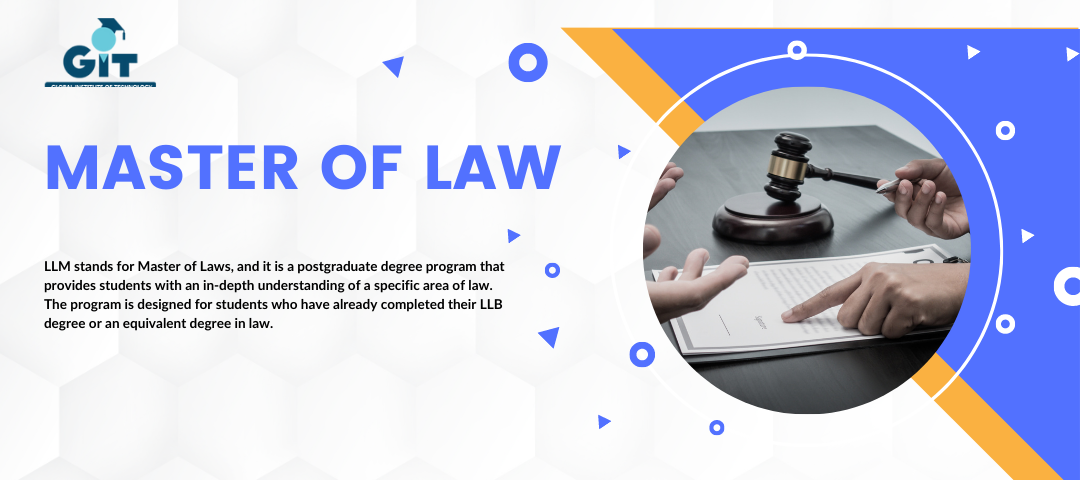
Master of Law
LLM stands for Master of Laws, and it is a postgraduate degree program that provides students with an in-depth understanding of a specific area of law. The program is designed for students who have already completed their LLB degree or an equivalent degree in law.
COURSE OUTCOMES
-
LLM stands for Master of Laws, and it is a postgraduate degree program that provides students with an in-depth understanding of a specific area of law. The program is designed for students who have already completed their LLB degree or an equivalent degree in law.
Approvals Checklist




Overview of Master of Law

LLM stands for Master of Laws, and it is a postgraduate degree program that provides students with an in-depth understanding of a specific area of law. The program is designed for students who have already completed their LLB degree or an equivalent degree in law.
overview of the LLM course curriculum:
-
Core Courses: LLM programs usually begin with a set of core courses that provide students with an overview of legal theory and research methods. These courses may include legal writing, legal theory, and legal research methods.
-
Specializations: LLM programs offer a range of specializations that allow students to focus on specific areas of law, such as corporate law, intellectual property law, international law, environmental law, and human rights law. Students can choose one or more specializations based on their interests and career goals.
-
Electives: LLM programs also offer a variety of electives that allow students to explore additional areas of law beyond their chosen specialization. These courses may include topics such as comparative law, health law, tax law, and sports law.
-
Internships: LLM programs may require students to complete internships with law firms, legal aid clinics, or courts to gain practical experience in their chosen field of law.
-
Research Paper: LLM programs usually require students to write a research paper on a legal topic of their choice. The research paper is an opportunity for students to apply their legal knowledge and research skills to a real-world legal issue.
Overall, the LLM course provides students with an opportunity to develop specialized legal knowledge and research skills, preparing them for careers as legal advisors, consultants, policymakers, or academics.
Eligibility criteria for LLM courses may vary depending on the university or institution offering the program. However, the general eligibility requirements for LLM courses in India are as follows:
Educational Qualification: Candidates must have completed their LLB degree or an equivalent degree in law from a recognized university. The minimum aggregate score required may vary from university to university, but it is generally around 50-55%.
Entrance Exam: Many universities and institutions require candidates to clear a LLM entrance exam to be eligible for admission. The entrance exam usually consists of objective-type questions related to legal aptitude and general knowledge.
Reservation: Candidates belonging to specific categories such as SC, ST, OBC, PWD, or minority groups may be eligible for reservation in seats as per government norms.
It is advisable to check the eligibility criteria of the specific institution where you want to pursue an LLM course to ensure that you meet all the requirements before applying for admission. Some universities may also require candidates to have work experience in the legal field, while others may require candidates to clear a personal interview or group discussion round.
5000+
Students Enrolled
20+
Courses Offered
30+
Top Universities
10+
10 Years of experience